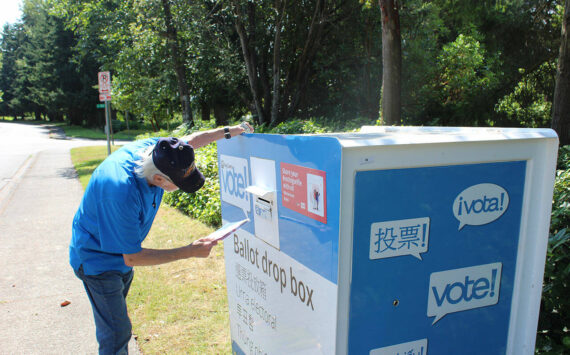Pierce County Superior Court has been awarded a $300,000 grant to expand and enhance its felony Drug Court program.
The grant is provided from the Office of Justice Programs at the U.S. Department of Justice. The grant will expand the number of participants in Drug Court and treat an additional 107 people each year.
Drug Court is an alternative to imprisonment and includes mandatory treatment. Individuals who qualify for the program are defendants with substance abuse issues charged with non-violent offenses, which have no prior “strike” offenses, sexual offenses or person-to- person crimes. Defendants who are military veterans will also benefit from the grant. The grant will provide seven new employment opportunities in Pierce County, six of which will be with a private treatment agency.
“Economic difficulties have required sacrifice by all parts of county government, and Drug Court has not been spared. It has experienced significant cuts in its funding and it has been a struggle for Superior Court judges to keep the program going. Because Drug Court remained a part of Pierce County’s budget, the court had the local matching funds needed to receive this grant,” said Bryan Chushcoff, Presiding Judge of Superior Court. “Superior Court thanks the county Executive and the County Council for their continued support and faith in the Drug Court. With this grant, Drug Court will continue to improve the lives of people in our community by making it safer and healthier for all.”
Pierce County Superior Court is a proven leader in establishing treatment courts. Its Drug Court began in 1994 as the 23rd drug court in the nation. Today, there are more than 2,000 drug courts worldwide. Since its inception, approximately 1,400 individuals have graduated from the Pierce County program. The Pierce County Drug Court includes a Felony section, a Family section and a Juvenile section. In October 2009, Pierce County launched the country’s third Felony Veteran’s Court, a program that provides treatment for up to 50 veterans.
Drug Court is effective in many ways: crime is lessened by reducing recidivism, children are reunited with stable families, and the incidence of drug addicted babies is diminished. For instance, 56 percent of defendants who participated in the Drug Court program remained crime-free after five years while for those who did not participate, 80 percent had been charged with a crime. These are outcomes with positive health and money-saving consequences.
Judge D. Gary Steiner is the 2010 Drug Court Judge. He is the state’s senior Superior Court judge and a co-founder of the program. Judge Thomas Larkin, a member of the court since 1997, will be Drug Court Judge in 2011.




